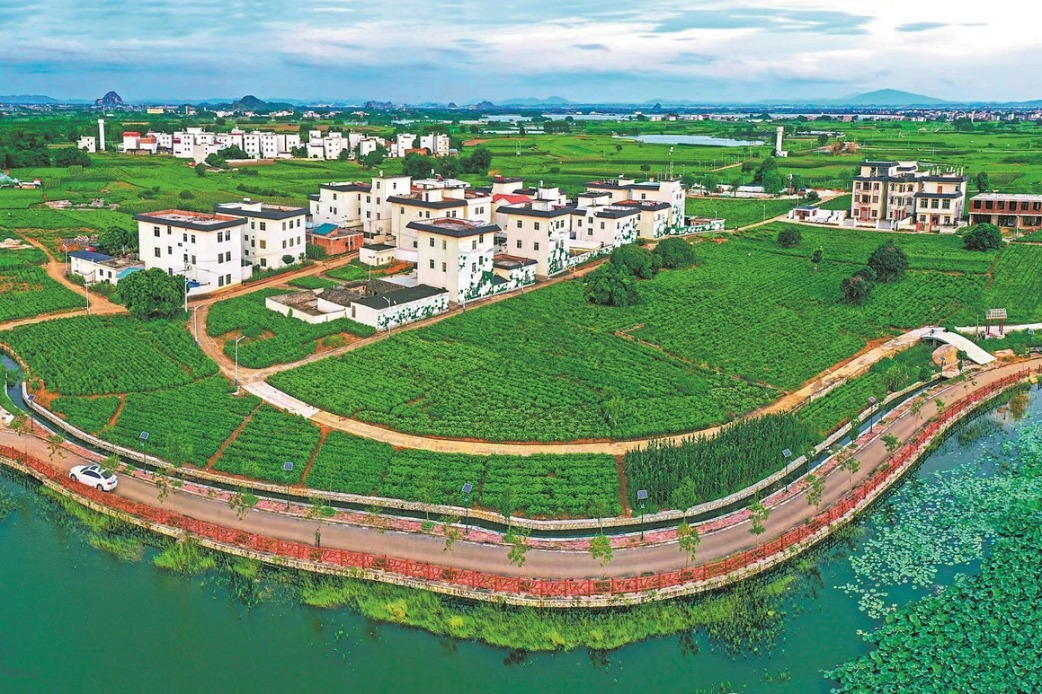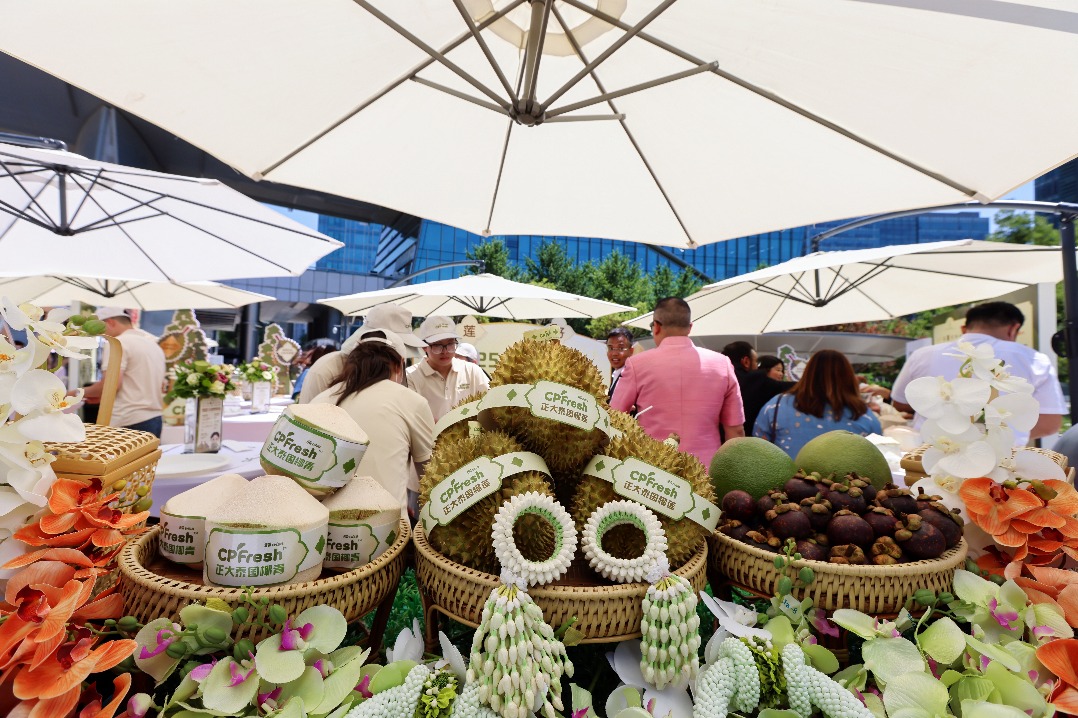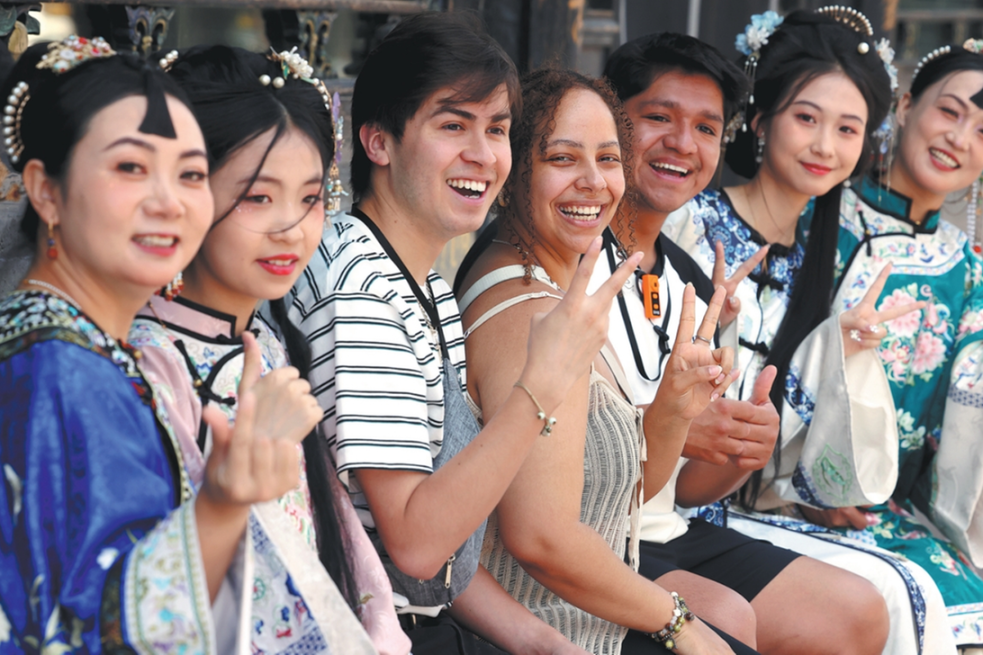Hengzhou's jasmine flower industry now in full bloom
From special drinks to high-tech AI cultivation, city reaps agricultural benefits

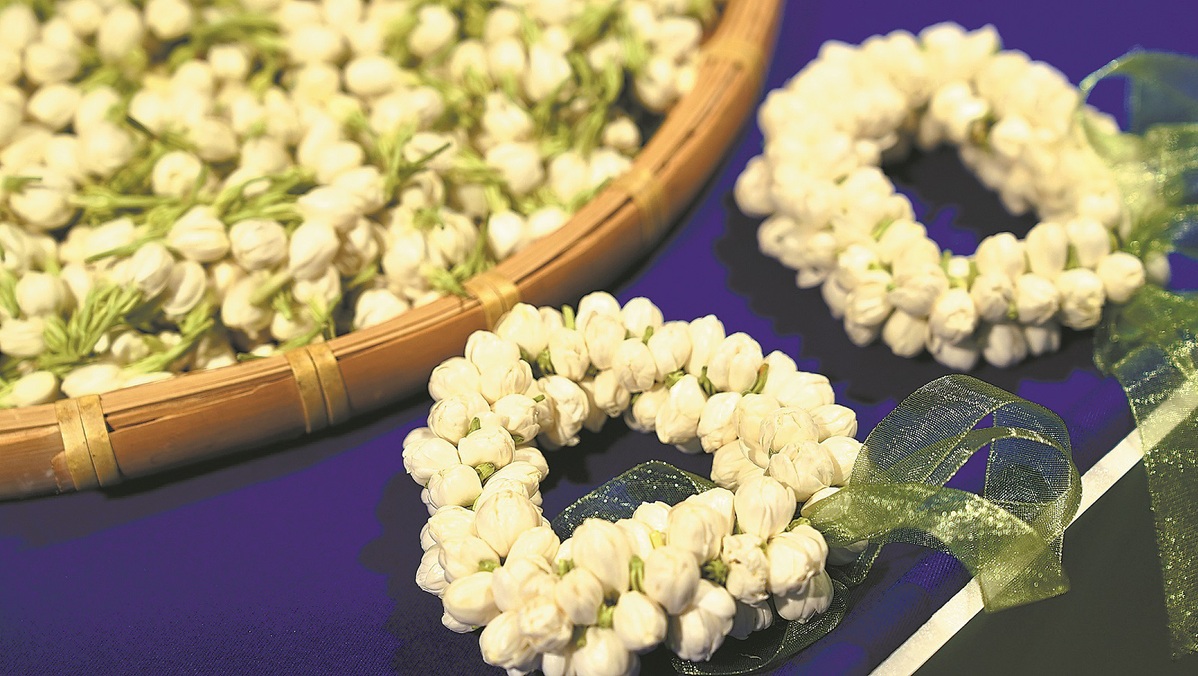
A new chapter
Hengzhou is also deepening its international ties to promote cultural and commercial exchanges, which are opening up new markets and fostering global partnerships.
On June 3, Hengzhou and Manosque in France, signed a letter of intent to establish a sister-city relationship. Manosque is in the heart of Provence's famed lavender country.
Liao Zhiqi, deputy secretary of Hengzhou's Party Committee, said the sister-city relationship will boost cooperation in culture, tourism, economics, trade, and agriculture to benefit both cities as well as China-France relations.
Hengzhou has also undertaken broader efforts in recent years to diversify its jasmine economy. The city has developed a "1+9" jasmine industry cluster, integrating jasmine with sectors like tea, potted plants, food, tourism, consumer goods, dining, medicine and sports.
To support this diversified growth, new-style tea drinks, including milk tea and other trendy beverages, have emerged.
He Haihong is the general manager of Southwest Tea Market, the largest national hub for jasmine flowers and jasmine tea raw materials. Fresh jasmine flowers are increasingly being used in trendy tea drinks, He said.
"The momentum of consuming new types of tea drinks is strong considering wide popularity among different age groups, and there is still room to grow," he said.
Tea producers, too, have spotted the new opportunities.
Xie Dagao, the inheritor and also CEO of Lixiang Tea Co, said the popularity of new-style tea drinks is reshaping the jasmine tea industry.
"Jasmine still has plenty of untapped potential," he said, noting that even coffee, one of the world's top beverages, has experimented with jasmine flavors.
His company has launched its own line of jasmine-based drinks, including jasmine milk tea, and opened new-style tea shops in Hengzhou. It also supplies raw materials to major beverage chains. Xie plans to strengthen his company's R&D capabilities to develop specialized jasmine products tailored for milk tea.
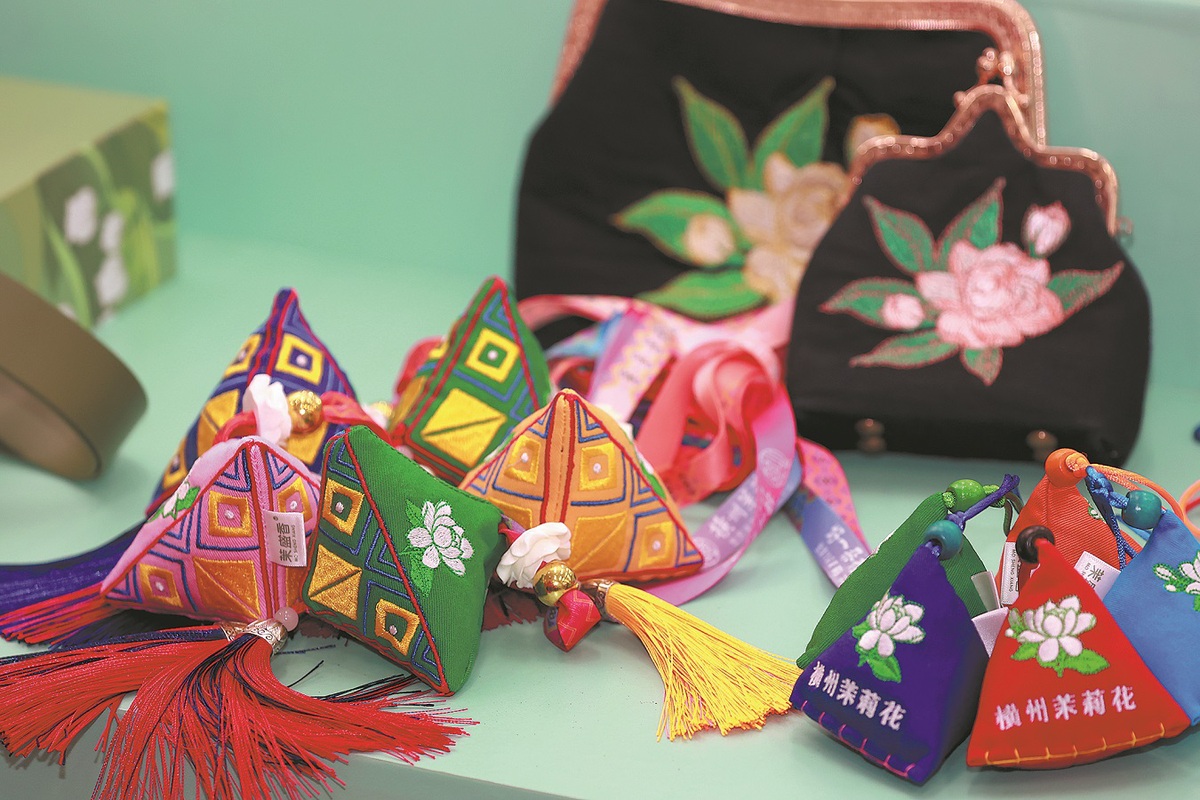
Educator Li Yemei is preparing a new generation of professionals to carry jasmine traditions into the future, while adding a modern twist. She has 15 years of experience teaching tea art, marketing, and etiquette, and sees her role as a bridge between heritage and modernity.
"There's growing interest in formal tea training — not just from students, but also tea business owners and young professionals," she said. "They see tea not only as a tradition but also a skill for hospitality and cultural expression."
With the rise of new Chinese teahouses and tea varieties like jasmine black and oolong teas, she has updated her teaching to include music, attire, and service styles to meet evolving tastes. She also trains students in etiquette to better serve international guests.
"Innovation keeps tradition alive and makes it relevant for the next generation," she said.
Liao Enhui, 18, is set to graduate this July from Hengzhou Vocational and Technical School. "I chose the major in tea production and processing because jasmine tea is so famous here, and my family also grows jasmine flowers. I hope to become a tea artist after graduation," she said.














